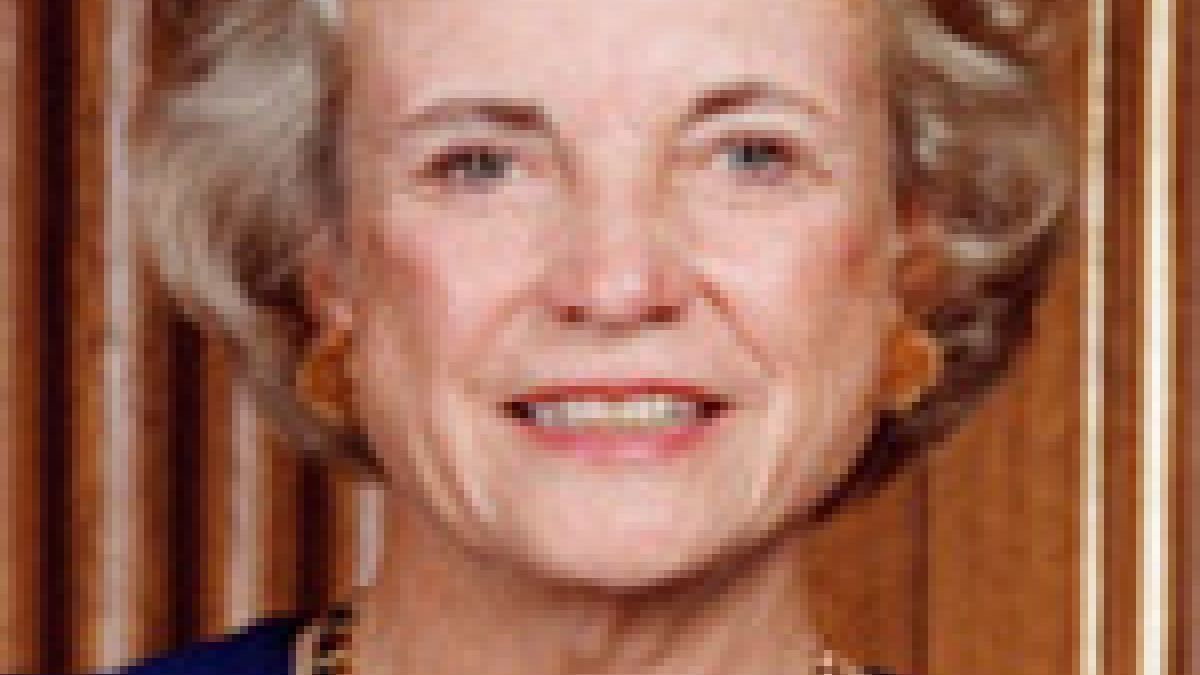Conference to explore role of science in preventing rampage killings

An upcoming conference will explore what role emerging science can play in predicting and preventing rampage killings now and in the future.
"Before the Shooting Starts: Predicting and Preventing Rampage Killings" is scheduled to take place from 9 a.m. to 4:30 p.m., Nov. 22, at the Sandra Day O’Connor United States Courthouse, 401 W. Washington St., Phoenix. U.S. Supreme Court Justice Sandra Day O’Connor (ret.) will give introductory remarks, along with U.S. District Court Judge Roslyn Silver and Gary Marchant, ASU Regents’ Professor and faculty director of the Center for Law, Science & Innovation at ASU's Sandra Day O’Connor College of Law, one of the sponsors of the event.
“The nation has been shocked by a series of recent horrific mass shootings that seem random and unpredictable,” Marchant said. “Science is beginning to understand what factors inside a rampage killer’s mind and in the surrounding environment contribute to these tragic incidents.
“This conference will bring together the nation’s leading experts on this urgent problem to discuss what science knows and how that science can be utilized in a helpful and ethically and legally appropriate manner.”
As the fifth in a series of biennial conferences on brain science and the law, "Before the Shooting Starts" will bring together many of the nation’s leading researchers, thinkers and practitioners from a variety of disciplines and perspectives to discuss the factors (psychological, social, environmental, genetic) that lead to rampage killings, the ability of science to predict such violence and possible treatments or prevention strategies.
“These horrific events are troublesome and very painful to all Americans, and the judiciary is no exception,” Silver said. “Judges and their staffs appear to some as cloistered and immune from the tragedies, but history has proven otherwise. Judges and courthouses have been victims and targets of these killings. And as such, the public is also at risk.
“This conference, whose objectives are to probe the reasons they occur and offer the current science at work to identify the causes and possible prevention, is long overdue.”
The conference will educate judges, attorneys, social workers, educators, care providers and other interested persons on these scientific developments and how they can be used to identify and treat troubled youths who may be at risk for engaging in rampage violence.
There will be two keynote speeches: "Mental Illness, Violence, and Mass Shootings: On Finding the Haystack in a Needle," by Jeffrey Swanson, professor in psychiatry and behavioral sciences at Duke University School of Medicine, and "Why Terrible Things Happen in Perfect Places: The Pathways to Rampage Shootings," by Katherine S. Newman, James B. Knapp Dean of the Krieger School of Arts and Sciences, Johns Hopkins University.
Swanson holds a doctorate in sociology from Yale University and is an expert in psychiatric epidemiology, mental health services effectiveness research, and mental health law and policy studies. His research is focused on evaluating the effectiveness of mental health restrictions on access to firearms.
Newman was previously the Malcolm Stevenson Forbes ’41 Professor in the Woodrow Wilson School of Public and International Affairs and the Department of Sociology at Princeton University, where she had taught since 2004. From 2007 until her departure from Princeton, she directed the university-wide Institute for International and Regional Studies.
The three panels are focused on neuroscience, challenges in clinical assessment, and law and policy.
The neuroscience panel, chaired by Cynthia Stonnington, associate professor of psychiatry and chair of the Department of Psychiatry and Psychology at the Mayo Clinic in Arizona, features two presentations: "Can Neuroscience Help Understand Risk For Homicide?" by Kent A. Kiehl, executive science officer/director of Mobile Brain Imaging at The Mind Research Network and professor of psychology, neuroscience and law at the University of New Mexico; and "Fuzzy Laws, Broken Brains, and Bad Behavior: Big Problems for Neuroscience and Law (And How to Think About Solving Them)," by Joshua W. Buckholtz, assistant professor of psychology at Harvard University.
The assessment panel, chaired by Elizabeth L. Leonard, clinical director at Neurocognitive Associates, features two presentations: "Mental Illness and the Right to Bear Arms," by Susan Rushing, assistant professor in the Department of Psychiatry at the University of Pennsylvania, Perelman School of Medicine; and "Can Mental Health Services Prevent Mass Murders?" by Joel Dvoskin, clinical and forensic psychologist.
The law and policy panel, chaired by Betsy Grey, the Alan A. Matheson Fellow and Professor of Law at the Sandra Day O’Connor College of Law, will feature three presentations: "Using the Least Intrusive Legal Proceeding ... A Careful Balancing Act," by Charles L. “Chick” Arnold, certified estate and trust law specialist and certified fiduciary; "Mental Health and Public Safety: The Relationship to Guns and Health Reform," by Harold Pollack, Helen Ross Professor at the School of Social Service Administration, University of Chicago; and "Ethical, Legal, and Practical Issues in Predicting and Preventing Crime," by Hank Greely, the Deane F. and Kate Edelman Johnson Professor of Law and director of the Center for Law and the Biosciences, and professor, by courtesy, of genetics at Stanford University.
The conference is co-sponsored by the Sandra Day O’Connor College of Law, ASU’s Lincoln Center for Applied Ethics, the United States District Court for the District of Arizona and The Steele Foundation.
It is free and open to the public, but registration is required at http://conferences.asucollegeoflaw.com/beforetheshooting/.
Courtroom seating is limited, and an overflow room will be set up to accommodate attendance beyond capacity. Please plan to arrive early to allow time for parking and going through security.
Up to five hours of CLE credit is available for a fee of $100, which also will give priority seating in the courtroom, until filled. The Arizona Psychological Association has also approved the conference for up to six hours of Continuing Education credit, which is available for a fee of $100, which also will give priority seating in the courtroom, until filled.